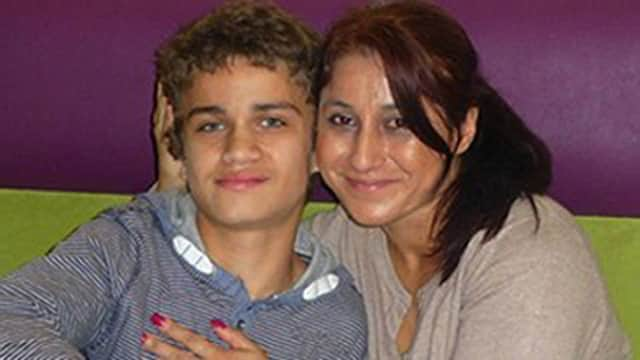£5.2 million awarded to mum of brain damage baby


Nadine Montgomery is set to receive a seven-figure sum – understood to be around £5.25 million – from NHS Lanarkshire following a landmark ruling in her favour by seven judges at the Supreme Court in London.
The ruling was described by lawyers as the “most significant medical negligence judgment in 30 years” and one that will affect the relationship between doctors and patients throughout the UK.
Advertisement
Hide AdAdvertisement
Hide AdMrs Montgomery said medics failed to offer her proper advice that would have allowed her to deliver her son via a caesarian. Sam Montgomery was asphyxiated after his shoulder became stuck in his mother’s pelvis. He had to be resuscitated and was born with cerebral palsy.
Mrs Montgomery claimed she had not been made fully aware of the specific risks during her pregnancy, given that she was diabetic and of a slight build.
The 40-year-old from Cumbernauld said the ruling was an “enormous relief” and would allow her to give Sam, 15, the “best possible care” for the rest of his life.
Her case hinged on whether the health board went far enough in advising Mrs Montgomery – a Type 1 diabetic who is just over five feet tall – of all the risks of giving birth.
Her obstetrician did not discuss these or raise the possibility of a caesarean section. Mrs Montgomery said that had she been advised of the risks, she would have gone for a C-section.
During his birth at Bellshill Maternity Hospital in October 1999, Sam’s shoulder became stuck. Staff performed appropriate manoeuvres to free him, but during the 12-minute delay, he was asphyxiated.
The need for resuscitation resulted in brain damage, leading to him being born with cerebral palsy and brachial plexus injury – damage to the nerves sending messages from the spine to the shoulder, arm and hand.
In their written ruling, the judges said: “The only conclusion that we can reasonably reach is that, had she [the consultant] advised Mrs Montgomery of the risk of shoulder dystocia and discussed with her dispassionately the potential consequences, and the alternative of an elective caesarean section, Mrs Montgomery would probably have elected to be delivered of her baby by caesarean section. It is not in dispute that the baby would then have been born unharmed.”
Advertisement
Hide AdAdvertisement
Hide AdLady Hale said the advice of Dr Dina McLellan, a consultant obstetrician and gynaecologist, over why a caesarean section may not be in women’s maternal interests did “not look like a purely medical judgment”. She added: “It looks like a judgment that vaginal delivery is in some way morally preferable to a caesarean section: so much so that it justifies depriving the pregnant woman of the information needed for her to make a free choice in the matter.”
Mrs Montgomery lost her initial claim for damages at the Outer House of the Court of Session in Edinburgh, as well as her appeal at the Inner House.
After yesterday’s ruling she said: “This judgment is an enormous relief after a very long legal fight. I believe that I had the right to know of all the risks surrounding Sam’s birth and I am pleased the Supreme Court has recognised that.”
Fred Tyler, of Edinburgh-based Balfour+Manson, who represented Mrs Montgomery, said: “This is almost certainly the most significant medical negligence judgment in 30 years – a momentous decision – which will affect the doctor-patient relationship throughout the UK.
“Doctors will have to discuss with their patients the options that exist in their treatment and advise them about the alternatives and any associated risks.”
Niall Dickson, chief executive of the General Medical Council, welcomed the judgment. He said: “We are pleased that the court has endorsed the approach advocated in our guidance on consent. [Doctors] must work in partnership with their patients, listening to their views and giving them the information they want and need to make decisions.”
Clark Hobson, a teaching fellow at Birmingham Law School, said the judgment’s ramifications would be “far reaching,” but would have to be tested.
“What will this mean for the professional-patient relationship?” he asked. “The Supreme Court recognises that such a relationship can also properly be described as a partnership. But does this statement perhaps give too much power to patients?”
Advertisement
Hide AdAdvertisement
Hide AdDr Iain Wallace, NHS Lanarkshire’s medical director, said that in the 15 years since Sam’s birth, practices at the health board had “changed significantly”. He said: “Women are more fully informed and advised of the risks and complications of pregnancy and birth than was the case at that time. We are disappointed in the Supreme Court’s decision, which has applied retrospectively to the law relating to informed consent and to this case.
“We have only just received this judgment and will need time to consider it fully. We understand, however, that it materially changes the law relating to consent and we, along with other health boards in the UK, will need to consider very carefully any potential implications for future service provision.”
FOLLOW US
SCOTSMAN TABLET AND MOBILE APPS